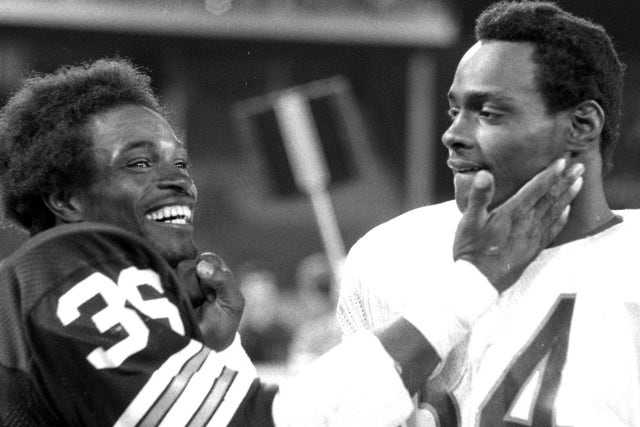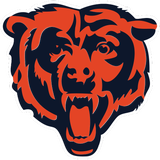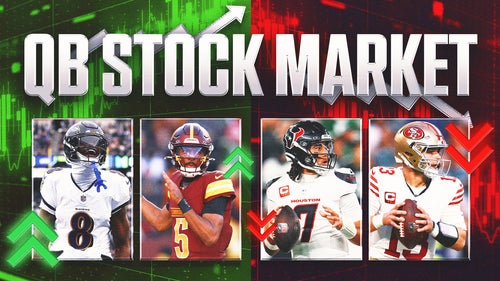
Where Are They Now: Eddie Payton got way better than Walter in another sport

BACK THEN: The older brother of NFL Hall of Famer Walter Payton, Eddie Payton played five NFL seasons for four different teams, including a three-year stint with the Minnesota Vikings from 1980-82. Primarily a return man, Payton led the NFL in 1980 with 53 kickoff returns and 1,184 kick return yards, and he had two kick return touchdowns and one punt return touchdown in his career — the punt return and one of the kick returns coming in the same 1977 game for the Detroit Lions.

Eddie played football at Jackson State, then coached golf there for 30 years after his NFL career was over.
TODAY: After his football career ended, Payton spent 30 years as the golf coach at his alma mater, Jackson State University, before retiring earlier this summer. During his time with the program, Payton’s men’s team won 25 conference championships and, in 1995, became the first HBCU to compete in the NCAA men’s golf championships. Payton, 65, also started the women’s team at JSU in 1994, and in 1999 the Lady Tigers joined the men as the first HBCU to compete in the women’s NCAA championships.
ON HIS BROTHER’S LEGACY: “He was a much better person than he was a football player. The things he did for charities and young people that he didn’t want anybody to know about would fill up another book. For most professional athletes today, it’s all about me — they catch a pass and take off their helmet, they make a tackle and beat themselves in the chest, they make a touchdown and dance with two or three people in the end zone. But Walter played with respect for the game, and he played, not for the people who were sitting in the box seats, but for the people who were sitting at the rim of the stadium — the people who could only put together enough money to take their sons and daughters to a Chicago Bears game once a year. He wanted to make sure he was at his best when they shell out the money to watch him play. He was more concerned with making the spectators happy with his performance than he was with any personal gain or personal achievement that he could make. And in today’s football, that wouldn’t just be rare, it would be unheard of.”

Eddie Payton spoke to Bears fans at Walter Payton's Soldier Field memorial service in 1999.
ON HIS MENTORS: “My first high school coach was Charles Boston, and he was the brother of Ralph Boston, the four-time Olympic medal-winner. And he always said that one can’t beat 11, but one can inspire the other 10 to do things that they didn’t think they could do. So your job is to go out and do your job and let your performance inspire your teammates to become better. Then we got to college and Bob Hill was our head coach, and he was an ex-running back who played in the league. And he would always say, ‘When you get in the end zone, you’ve got 10 other people to thank for it, so act like you’ve been there before, thank them, hand the ball back to the official and go back and try to do it again.’ And I think when that’s ingrained into you at an early age, you don’t have to think about it. It’s just something you do because it’s something that you’ve always done.”
ON PLAYING IN HIS BROTHER’S SHADOW: “I didn’t mind it at all for two reasons: One is that you’re constantly being compared to one of the greatest football players of our time. And you know you’re going to come up short in comparison, but to be compared with him means that you’re doing something good enough to make a comparison in the first place. The second thing is, I know I was a better athlete than my brother. I taught him everything that he knew. And he may have been a step better as a football player, but I was a much better basketball, baseball, track, tennis and golf player. So in the Payton family, we know who the best football player was — there’s no argument. But there’s also no argument as to who was the best athlete.”

Almost 30 years after his retirement, Walter Payton remains second on the NFL's all-time rushing list.
ON HIS GOLF HANDICAP: “I’m not playing as much because I had a knee replacement about three months ago and I’m trying to let that heal. But I’ve played in a couple tournaments, finished second a couple times, and I would think my handicap now would be around scratch, which really isn’t so bad. Golf is the only game in the world where you can have bad numbers and a good day playing. I mean, you don’t have to hit too many shots to be happy with what you accomplished that day. But when you get to be scratch, it’s all about numbers, and it doesn’t matter how you hit it. It’s what you score. And it really takes a lot of the enjoyment out, because your expectations are so high that you really can’t enjoy the people you’re playing with or the game.”
ON THE POPULARITY OF GOLF AMONG AFRICAN-AMERICANS: “All you have to do now is look at the number of African-American men on the PGA Tour. I think there are only one or two, and that’s one or two more than in 1961, when the PGA Tour had a bylaw that said caucasians only. But if we can play basketball in great numbers, if we can play baseball in great numbers, if we can play football in great numbers, and tennis, why haven’t we made the same strides in golf as it relates to the minority community?

Tiger Woods remains a rarity on the PGA Tour, and that's something Eddie Payton would like to see change.
“You can look at any reason you want, and you would probably be right, but the main reason is that we, as a race of people, have not put the emphasis and the facilities in place that will allow kids to learn the game, be challenged, and become good enough to receive a college education and compete with the best in the world on the best facilities in the world. It’s not the man’s fault, it’s the brothers’ fault, and that’s kind of what I’m trying to do now. I’m working with the city trying to get them to rent me a course that they’re getting ready to close as a teaching academy for minority kids.”
You can follow Sam Gardner on Twitter or email him at samgardnerfox@gmail.com.










